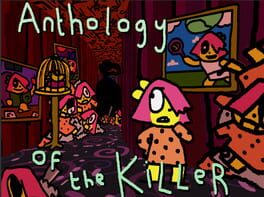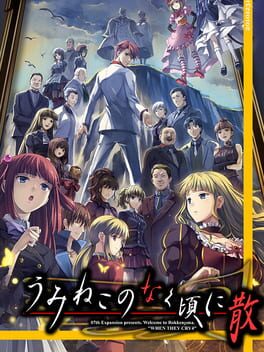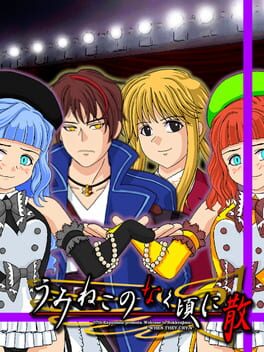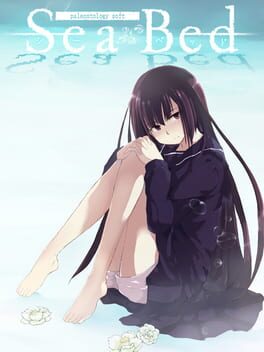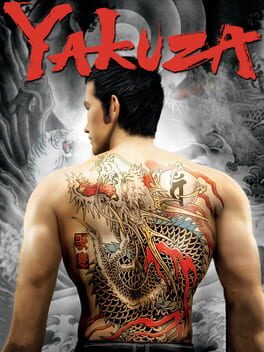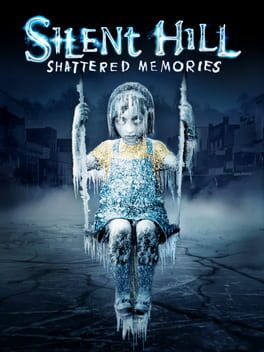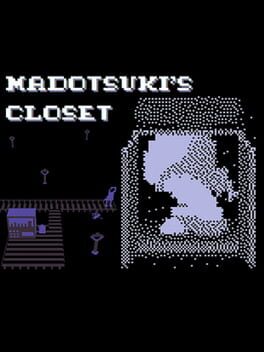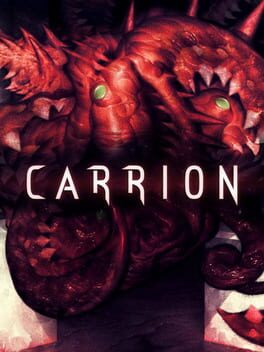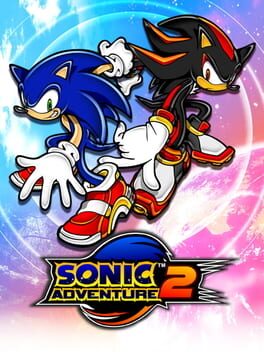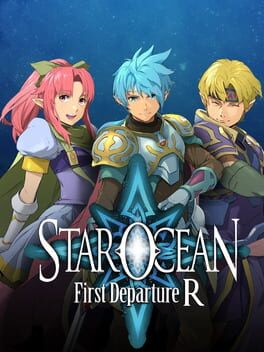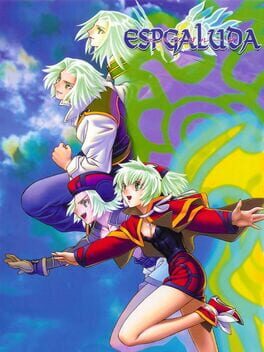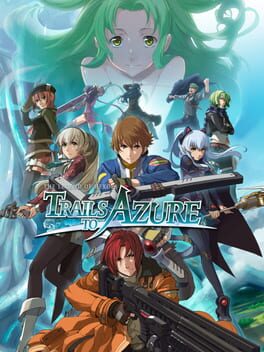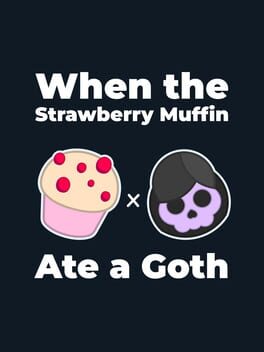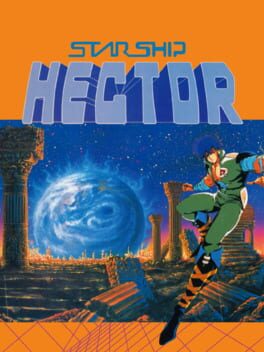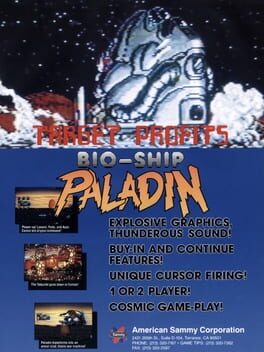wasnotwhynot
15 Reviews liked by wasnotwhynot
Extremely extremely delightful. I've been savoring these over the last few months, and I finally ran through the epic finale last night. I've been playing thecatamites's games for over a decade, so it's really awesome to see so much of his style synthesized into such a dense hilarious vision.
It's cathartic because I've actually often struggled to connect with his games. thecatamites's work is focused more than anything on strong texture, loved-on spaces, and funny lyrical writing. That's all great -- but I like games with strong emotional arcs, stories that take me on dramatically pointed and specific journeys. thecatamites's games (and his criticism for that matter) don't generally seem interested in drama at all. Anything resembling a dramatic moment in his games tends to feel playful and ironically detached. In many respects our critical lenses are almost exact opposites.
I had a really negative reaction to Magic Wand when it came out for this reason; I kept expecting it to have some kind of real rpg story, and it just doesn't. Space Funeral has a neat little meta theme at the end that really resonated with me, but it's more of a cute final note than a big climax. The games of his I've enjoyed the most with are the short comic ones like Murder Dog IV, where I can focus on enjoying the texture and jokes, and they're over before I can build any lofty narrative expectations in my head.
Anthology of the Killer meets me half-way. The grand joke of these games is that thecatamites is as good as literally anyone on itch at making Eerie Haunting Dream spaces in 3D, at setting up scares, at panicky chase sequences. He speaks the language of "Unity horror game" extremely fluently -- which makes it VERY funny when BB cracks a perfectly timed hilarious joke that sucks all the tension out of the scene. (Drool of the Killer's ending sticks out to me as a particularly great moment.)
The writing is SO funny, constantly, and pairing that sense of humor with the great horror language never stops being delightful. It's also possible he was always this funny, and I was just finally disarmed and willing to fully accept his sense of humor because he fit it into a game with the most perfect cast of blorbos imaginable (I cherish ZZ).
I haven't played all of thecatamites' ouevre, in part because I've sometimes come out of his games frustrated. I feel bad about never getting around to 50 Short Games or 10 Beautiful Postcards in particular; I really want to play those. Part of me wants to end this on something like "Anthology of the Killer is thecatamites at the height of his powers," but that doesn't feel quite right. It's more like, I'm thankful that he channeled his myriad artistic strengths into a package I could personally connect to, even as someone that doesn't share all his values as a creator and player.
It's cathartic because I've actually often struggled to connect with his games. thecatamites's work is focused more than anything on strong texture, loved-on spaces, and funny lyrical writing. That's all great -- but I like games with strong emotional arcs, stories that take me on dramatically pointed and specific journeys. thecatamites's games (and his criticism for that matter) don't generally seem interested in drama at all. Anything resembling a dramatic moment in his games tends to feel playful and ironically detached. In many respects our critical lenses are almost exact opposites.
I had a really negative reaction to Magic Wand when it came out for this reason; I kept expecting it to have some kind of real rpg story, and it just doesn't. Space Funeral has a neat little meta theme at the end that really resonated with me, but it's more of a cute final note than a big climax. The games of his I've enjoyed the most with are the short comic ones like Murder Dog IV, where I can focus on enjoying the texture and jokes, and they're over before I can build any lofty narrative expectations in my head.
Anthology of the Killer meets me half-way. The grand joke of these games is that thecatamites is as good as literally anyone on itch at making Eerie Haunting Dream spaces in 3D, at setting up scares, at panicky chase sequences. He speaks the language of "Unity horror game" extremely fluently -- which makes it VERY funny when BB cracks a perfectly timed hilarious joke that sucks all the tension out of the scene. (Drool of the Killer's ending sticks out to me as a particularly great moment.)
The writing is SO funny, constantly, and pairing that sense of humor with the great horror language never stops being delightful. It's also possible he was always this funny, and I was just finally disarmed and willing to fully accept his sense of humor because he fit it into a game with the most perfect cast of blorbos imaginable (I cherish ZZ).
I haven't played all of thecatamites' ouevre, in part because I've sometimes come out of his games frustrated. I feel bad about never getting around to 50 Short Games or 10 Beautiful Postcards in particular; I really want to play those. Part of me wants to end this on something like "Anthology of the Killer is thecatamites at the height of his powers," but that doesn't feel quite right. It's more like, I'm thankful that he channeled his myriad artistic strengths into a package I could personally connect to, even as someone that doesn't share all his values as a creator and player.
God I'm tired... pretty good ending though. I can see how folks got pissed off back when it released, but I was already Very Mad at the end of ep 6 and 7 and pretty checked out. A lot of this ep surprised and delighted me in comparison. Once I'd found my solid ground (a character I like is on the literal precipice of an important choice) I could finally just roll with the story and enjoy it, I found the stakes and could enjoy the magic finally.
It's a good ending to a different visual novel. I think he figured out too late what his story was REALLY about and couldn't go back to edit the earlier eps 'cause they were already released. Umi feels at war with itself on the mystery/truth stuff, I just don't think it's all the way there. But like, I ended eps 6 and 7 really pissed off and thinking this whole thing was a disaster, "not all the way there" is a big upgrade from that.
I thought ep 8 would reveal once and for all that the mystery box was empty, that the story really didn't have a heart; instead it did the opposite. I'm glad I stuck it out and read the last two eps. If you're willing to do a lot of the work yourself (too much IMO) and fill in the gaps I can see being really moved by it.
Ultimately still too little too late for me, sorry. I hate getting jerked around and umi Jerks You Around. And christ alive why is it 120 hours long. "In retrospect that holds together in a pretty neat way" isn't what I want out of an eight book series -- I want to fully enjoy it as I'm actually reading it, like I did with ryukishi's previous series.
It's never gonna be one of my faves but I can understand and appreciate why friends adore it now. If you tell people to skip higurashi and read umineko first then we're Eternal Enemies though.
It's a good ending to a different visual novel. I think he figured out too late what his story was REALLY about and couldn't go back to edit the earlier eps 'cause they were already released. Umi feels at war with itself on the mystery/truth stuff, I just don't think it's all the way there. But like, I ended eps 6 and 7 really pissed off and thinking this whole thing was a disaster, "not all the way there" is a big upgrade from that.
I thought ep 8 would reveal once and for all that the mystery box was empty, that the story really didn't have a heart; instead it did the opposite. I'm glad I stuck it out and read the last two eps. If you're willing to do a lot of the work yourself (too much IMO) and fill in the gaps I can see being really moved by it.
Ultimately still too little too late for me, sorry. I hate getting jerked around and umi Jerks You Around. And christ alive why is it 120 hours long. "In retrospect that holds together in a pretty neat way" isn't what I want out of an eight book series -- I want to fully enjoy it as I'm actually reading it, like I did with ryukishi's previous series.
It's never gonna be one of my faves but I can understand and appreciate why friends adore it now. If you tell people to skip higurashi and read umineko first then we're Eternal Enemies though.
Yeah, I'm completely checked out. First 3/4s of the tea party was maybe the most hyped I've ever been playing umineko but the sappy way it resolves ruins it, and the rest of the episode's a snoozefest.
Gonna play ep 8 of course but this is a huge step down from higurashi. Ryukishi focused so much on the pointlessly reader-adversarial mystery that he forgot to tell a good story.
Gonna play ep 8 of course but this is a huge step down from higurashi. Ryukishi focused so much on the pointlessly reader-adversarial mystery that he forgot to tell a good story.
SeaBed
2016
In terms of the intensity and depth of the emotional response it engendered in me, Seabed compares neatly with The House in Fata Morgana. It takes a completely different, much quieter and subtler path to get there, obviously. Fata Morgana gets there with the most hard hitting melodrama possible. Seabed gets there through countless quiet moments, all working in concert to slowly weave a spell over you without you even realizing.
As a text game dev, I deeply appreciate the presentation. The whole story is told through VA-less NVL-mode walls of text, borrowed royalty-free music, as few VN presentation tricks as humanly possible, and a combo of blurred photo and cheap blender backgrounds. The only major points of aesthetic interest are the beautiful character illustrations by hide38 (who also wrote the script).
And the story still hits like a truck. When you make your characters and their longings feel this real in the reader's heart, you don't need voice acting or a bunch of expensive one-off assets. Seabed does exactly what it needs to with the presentation to support the writing, then gets out of the way and lets the story speak for itself. I think that's really admirable, and speaks to a confidence that a lot of devs would benefit from.
If all this sounds back-handed, it shouldn't. Some of the most well-loved VNs in history are doujin games like Higurashi or Tsukihime, which used similar aesthetic shortcuts. I cherish many VNs with super-loved-on presentation. But my favorites will always be the ones that make me believe in their stories, and you get there first and foremost with strong writing.
Seabed is as affecting a story as any visual novel I've read. I don't have much to say beyond that that wouldn't spoil the shape of the story (hence why I spent three paragraphs soapboxing about VN direction). If you're up for the slowest of slow burns, and you appreciate VNs with grown-up theming that don't talk down to you, give this one a read.
As a text game dev, I deeply appreciate the presentation. The whole story is told through VA-less NVL-mode walls of text, borrowed royalty-free music, as few VN presentation tricks as humanly possible, and a combo of blurred photo and cheap blender backgrounds. The only major points of aesthetic interest are the beautiful character illustrations by hide38 (who also wrote the script).
And the story still hits like a truck. When you make your characters and their longings feel this real in the reader's heart, you don't need voice acting or a bunch of expensive one-off assets. Seabed does exactly what it needs to with the presentation to support the writing, then gets out of the way and lets the story speak for itself. I think that's really admirable, and speaks to a confidence that a lot of devs would benefit from.
If all this sounds back-handed, it shouldn't. Some of the most well-loved VNs in history are doujin games like Higurashi or Tsukihime, which used similar aesthetic shortcuts. I cherish many VNs with super-loved-on presentation. But my favorites will always be the ones that make me believe in their stories, and you get there first and foremost with strong writing.
Seabed is as affecting a story as any visual novel I've read. I don't have much to say beyond that that wouldn't spoil the shape of the story (hence why I spent three paragraphs soapboxing about VN direction). If you're up for the slowest of slow burns, and you appreciate VNs with grown-up theming that don't talk down to you, give this one a read.
Yakuza
2005
The stark contrast between the English dubs "You fucking piece of shit! You're fucked if you think you can fuck my shit up!" and the otherwise slow-burn crime drama plot, I choose to believe, is the origin point for the insane tonal dichotomy the rest of the series is famous for. Either that or Majima being a fucking lunatic.
Actually a pretty amazing game, and can only assume it's hard-to-describe distance from the first four is why it's rated so much lower. There are aspects here I believe to be straight-up more effective than any other Silent Hill, then there are things that are entirely absent, like the horror and combat. I think this is the first time I wished that this wasn't a video game or didn't have to be a Silent Hill, for the enhanced freedom to drink up the environment made the exploration segments feel like watching a Lynch film. Having an American team, to me, made the environment genuinely feel American. I've been to places that look exactly like these locales! I can fill in their smells and see the phantoms of where people would be. The decay and desolation felt more real to me, more effectively liminal. Other than the shitty reveal, this may also be the best-written Silent Hill (dialogue and character-wise, the semiotics were weak). I spent the whole game speculating Harry's role, thinking he abandoned his daughter and ultimately destroyed both of them. I thought for a bit that Dahlia was Cheryl at her absolute lowest, hooking up with her father without either realizing it. Shit left a lot of room for speculation, and I really wish they didn't lay all their cards out. All these broken women coming in and out of Harry's life, all of which you get to choose if you be creepy towards or respect certain boundaries, I felt was building towards a greater reveal. The ice-otherworld sequences I could've done without. By the second time, it had already become confusing and unmemorable. Luckily they don't take up that much of the game. The atmosphere really is such a boon to making the experience feel terrific. There were a few points where I just stared at the side of a building, letting Best Game Composer work his magic on me. I read every sign the PS2 gave a decent resolution to and got disappointed every time I accidentally progressed before getting to check every single corner for details. What else... Michelle and Dahlia had killer fits, and apparently they change off your behaviour? Really cool. Also a little disappointing that all the therapy mini-games just led to a pretty general ending and a meaningless astrology reading, but I don't know how much was reasonable to expect. They were engaging, which is the best I can ask for. I'd heard it did a lot more with it's psychology mechanics, and was expecting it to, than it actually felt like it did. The ways it does utilize them, however, I found very fun. By no means a masterpiece, definitely worth playing, at least to hang out in.
Madotsuki's Closet
2021
[post-note: in the vein of the game, this "review" is a deeply personal and voyeuristic look into myself. it's alright, you can come in. after all, half of the five people that might see this have already looked away with this foreword, and no one consequential in my life will ever find this.]
I sobbed through pretty much every second of this. Brief respites of laughter cut the raw resonance of emotion I brought upon myself. But it's not art, is it? It's a voyeuristic journal entry, a thing not to be anything, a mere piece of appreciation that likely picked up traction accidentally through wearing the skin of a fan-game. It's a self-evaluation tucked away in the infinite somewhere of the wired world. Yet, it's identically the exact experience I seek from any piece of media: to be profoundly overcome by a contextualization or re-formatting of the self. My suffering is a tangible existence both in what goes said and unsaid within this space. It rears it's head, it fucks with me, it doubts me, it tells me exactly what I want to hear, it tells me what I left behind, what I wish I had. It speaks to me in all the ways I speak to myself. I haven't experienced art. I've experienced another human being. I looked through her past, her personas, her friends and her dreams, and yet selfishly in her, I only saw myself. I think a lot of the untenable, uncrossable bridge, the endless space that exists between our minds. I'm so scared to talk sometimes, though I know I have so much to say. I can't translate myself except through my words, yet civil standards, self-doubt and floating judgements cut my tongue and halt my pen. I want to transcribe my bridge. I want people to see beyond the body, the voice, the hobbies, the opinions, even the words, to express the rawest form of self, of the magical thing of self that I love and no one else can feel, and to still be loved as that thing, to nullify this whole social game we oppress ourselves with. Madotsuki's Closet was perhaps the closest I've ever felt to standing on someone else's bridge. Even with my closest friends, their physicality and our shared history of things other than the self makes me incapable of willing myself to cleanly pierce through them. I don't mean to imply some odd parasocial bond I have with the creator, for as I said, I stared into it's abyss and only saw myself. It's part of why I sobbed. Her introduction to transness through Yume Nikki with a "there are worse ways" became my exposure through anti-SJW YouTube content making disgusting one who could be so presumptuous and fetishistic to dare challenge the institution of gender. Her jokes and irony became my own mask for online engagement that I renew time and time again to appease the people who use this space as a playground for pleasure. Her messages with her friends became my own hollowness of a lifetime of cowering in fear of my true self, then finally overcoming it all to be met with "oh, cool". The young girl on the bench (and oh GOD did she crush me) became my own wishes to simply have been born different. She became my desire not to be trans or trying to be female, but just to have been born it with the privilege of not having to question. She became my unalterable skeleton oppressing me from the deepest recesses of my flesh. She became, at once, all from my childhood I was while also being all the hundreds of little signs I missed and didn't have the language to will or question. She became who I dressed up as or roleplayed under the covers or in my literal closet. She became my opting into silence to not hear my own voice, my tantrums after haircuts, my rejection of masculine hobbies, my starving myself to be shorter and more frail, my fiction writing to create worlds and characters to escape into, my longing for death as my body turned itself more and more uninhabitable with the loss of that childhood androgyny. She became the childhood and happiness and optimism and celebrated, babied, blissful ignorance that everyone seemed entitled to up until their teens, but that I felt I had been born without. I appropriated Bagenzo's literal dreams, and I feel dirty for it. I took them and imposed myself on them. I overwrote her, and I can replay her, share her, discuss her like a thing to be chewed, swallowed and shat out. Yet, in overriding her, I filled in the holes of myself. I paved the narrative of pursuit of traditional femininity that underlied my whole childhood. I bridged the gap between the art I enjoy and their reflections on the person I am. Much like Yume Nikki, much like the thousands of fan theories on it, I took someone elses dreams and projected myself on them, not until they made sense, but until I did. This was perfect, exemplary of the very things I want from life and art. Yet, what was it that I am considering exemplary? Is the game a perfect product, is Bagenzo a perfect writer, or is what I have taken in a perfect addition to my self? I think rankings disgust me now, as do all the arguing I've done to uphold opinions and all the art I've experienced for other people. I'm not going to bother answering... the void has listened long enough. Perhaps I've let one of you onto my bridge, or perhaps not. Perhaps I appear insane, self-indulgent, pretentious. That's all right, as long as my bridge exists for now in this magical somewhere. As for me, don't worry, I've made peace with most of this stuff. But something tells me you might not have seen "me" here, right? You saw whatever could be morphed into you. If art is to be defined as anything, perhaps it's that.
I sobbed through pretty much every second of this. Brief respites of laughter cut the raw resonance of emotion I brought upon myself. But it's not art, is it? It's a voyeuristic journal entry, a thing not to be anything, a mere piece of appreciation that likely picked up traction accidentally through wearing the skin of a fan-game. It's a self-evaluation tucked away in the infinite somewhere of the wired world. Yet, it's identically the exact experience I seek from any piece of media: to be profoundly overcome by a contextualization or re-formatting of the self. My suffering is a tangible existence both in what goes said and unsaid within this space. It rears it's head, it fucks with me, it doubts me, it tells me exactly what I want to hear, it tells me what I left behind, what I wish I had. It speaks to me in all the ways I speak to myself. I haven't experienced art. I've experienced another human being. I looked through her past, her personas, her friends and her dreams, and yet selfishly in her, I only saw myself. I think a lot of the untenable, uncrossable bridge, the endless space that exists between our minds. I'm so scared to talk sometimes, though I know I have so much to say. I can't translate myself except through my words, yet civil standards, self-doubt and floating judgements cut my tongue and halt my pen. I want to transcribe my bridge. I want people to see beyond the body, the voice, the hobbies, the opinions, even the words, to express the rawest form of self, of the magical thing of self that I love and no one else can feel, and to still be loved as that thing, to nullify this whole social game we oppress ourselves with. Madotsuki's Closet was perhaps the closest I've ever felt to standing on someone else's bridge. Even with my closest friends, their physicality and our shared history of things other than the self makes me incapable of willing myself to cleanly pierce through them. I don't mean to imply some odd parasocial bond I have with the creator, for as I said, I stared into it's abyss and only saw myself. It's part of why I sobbed. Her introduction to transness through Yume Nikki with a "there are worse ways" became my exposure through anti-SJW YouTube content making disgusting one who could be so presumptuous and fetishistic to dare challenge the institution of gender. Her jokes and irony became my own mask for online engagement that I renew time and time again to appease the people who use this space as a playground for pleasure. Her messages with her friends became my own hollowness of a lifetime of cowering in fear of my true self, then finally overcoming it all to be met with "oh, cool". The young girl on the bench (and oh GOD did she crush me) became my own wishes to simply have been born different. She became my desire not to be trans or trying to be female, but just to have been born it with the privilege of not having to question. She became my unalterable skeleton oppressing me from the deepest recesses of my flesh. She became, at once, all from my childhood I was while also being all the hundreds of little signs I missed and didn't have the language to will or question. She became who I dressed up as or roleplayed under the covers or in my literal closet. She became my opting into silence to not hear my own voice, my tantrums after haircuts, my rejection of masculine hobbies, my starving myself to be shorter and more frail, my fiction writing to create worlds and characters to escape into, my longing for death as my body turned itself more and more uninhabitable with the loss of that childhood androgyny. She became the childhood and happiness and optimism and celebrated, babied, blissful ignorance that everyone seemed entitled to up until their teens, but that I felt I had been born without. I appropriated Bagenzo's literal dreams, and I feel dirty for it. I took them and imposed myself on them. I overwrote her, and I can replay her, share her, discuss her like a thing to be chewed, swallowed and shat out. Yet, in overriding her, I filled in the holes of myself. I paved the narrative of pursuit of traditional femininity that underlied my whole childhood. I bridged the gap between the art I enjoy and their reflections on the person I am. Much like Yume Nikki, much like the thousands of fan theories on it, I took someone elses dreams and projected myself on them, not until they made sense, but until I did. This was perfect, exemplary of the very things I want from life and art. Yet, what was it that I am considering exemplary? Is the game a perfect product, is Bagenzo a perfect writer, or is what I have taken in a perfect addition to my self? I think rankings disgust me now, as do all the arguing I've done to uphold opinions and all the art I've experienced for other people. I'm not going to bother answering... the void has listened long enough. Perhaps I've let one of you onto my bridge, or perhaps not. Perhaps I appear insane, self-indulgent, pretentious. That's all right, as long as my bridge exists for now in this magical somewhere. As for me, don't worry, I've made peace with most of this stuff. But something tells me you might not have seen "me" here, right? You saw whatever could be morphed into you. If art is to be defined as anything, perhaps it's that.
Carrion
2020
Carrion does One Thing and does it really really well. I was worried at first it would get tedious as the game went on, but it introduces just enough little movement and puzzle mechanics to keep things fresh. I really appreciate the game's restraint; less confident games would have three times as many upgrades, ten times as many optional collectibles. But Carrion only does exactly what it needs to communicate its story. It knows it doesn't need to dangle keys in front of your face to keep you interested.
It was clearly play-tested to hell and back too. It takes a ton of work to make a game that feels this smooth and frictionless without also feeling patronizing. It reminded me of Valve games at their best honestly. The choice to not have an in-game map was inspired, and I'm sure it created a lot of extra work making sure players can stay on track without one, but it fit the tone perfectly.
I appreciate the inclusion of the containment units since it gave me an excuse to run around the game world at the end, see how things fit together. It took maybe an hour to find them all, which felt like exactly the right amount of time I wanted to be backtracking before going back and watching the perfect ending play out. The extra puzzle rooms were fun too, and I appreciate that none of the setpieces ever got hard enough that I got frustrated with the innate imprecision of the movement.
Making a commercial-scale game that's this quietly Rock Solid is a huge accomplishment. There isn't a single thing about it I'd want to add or take out. I can't remember the last game of this scope I could say that about.
It was clearly play-tested to hell and back too. It takes a ton of work to make a game that feels this smooth and frictionless without also feeling patronizing. It reminded me of Valve games at their best honestly. The choice to not have an in-game map was inspired, and I'm sure it created a lot of extra work making sure players can stay on track without one, but it fit the tone perfectly.
I appreciate the inclusion of the containment units since it gave me an excuse to run around the game world at the end, see how things fit together. It took maybe an hour to find them all, which felt like exactly the right amount of time I wanted to be backtracking before going back and watching the perfect ending play out. The extra puzzle rooms were fun too, and I appreciate that none of the setpieces ever got hard enough that I got frustrated with the innate imprecision of the movement.
Making a commercial-scale game that's this quietly Rock Solid is a huge accomplishment. There isn't a single thing about it I'd want to add or take out. I can't remember the last game of this scope I could say that about.
Sonic Adventure 2
2001
Only through time and experience can one gain the sagacity to realize they are a dope with worthless opinions. For four years, when asked the worst video game I've ever played, my default response would usually be this. I loathed it, based mostly on the fact it pissed me off. I remember finding Sonic and Knuckles unplayably jank, the levels all sloppily designed and the rest just generally unfun. The biggest problem in retrospect is that I went in with years of hearing every YouTuber I grew up with disparage the series. In my head, it was nothing but a disappointment factory from a failure company in the years where the Mario Galaxy brothers were collectively still my favourite game of all time. Hell, I don't think I'd have ever even played the damn thing if it wasn't for that Snapcube fan-dub. My opinion, as much as I hadn't realized it, was psychologically pre-emptive, established on experiences which weren't my own. Naturally, the one Sonic game I've played had to reflect that mediocrity. Then, now that I had a position, I found it bombarded by fans of the games or witnessed joy over a game I detested. Eventually, I began to respect the music and, having not touched the Chao garden my first time around, always heard that it was the best part and had to respect it. Originally despising the cast, I came to concede that most of them are quite lovable after playing Murder of Sonic the Hedgehog (though I still sort of detest Sonic's character). I watched videos by hazel and KingK, conceding more and more while still holding arrogantly on to my view out of mere tenacity and the gripping comfort of having a scapegoat. Something in me needed a game to be the worst, to be a 1/10 point of reference by which all could be weighed in displeasure.
Recently, I've been holding off on purchasing games, instead completing or achievement hunting in games that have sat on the backlog long enough to be fatal. Having only the achievements for the Hero Story and First Level, the scent of the burning witch beckoned me. I'd dip my toes in the Chao Garden, perhaps give a couple of the Villain Story levels the old college try. Out of what I can only assume to be trauma from my first run-in with Miss Adventure 2, I looked into graphics and physics mods, admittedly indulging in a few cheats to hasten and make less punishing my return. After some troubleshooting amidst which I complained of the game's awfulness, off I went. While feeling out the Chao Garden, I began to come to a realization. Immediately, the little details charmed me as I scanned the setpieces in the Chao's kindergarten. The mistranslations echoed the charm of the obscure B-titles I'd been playing. The music, textures and skyboxes encapsulated this perfect childhood feeling. The Chao system shocked me in it's complexity, and the damn things were so cute it made me uncomfortable. Between all that and my character of choice, Eggman, hobbling at mach 10 between the homely Japanese schoolhouse and serene Windows screensaver, I was having fun. Not planning to wait around for 3 hours for my two unleveled Chao to develop into an angel and devil, I tried my hand at the Villain Story. I constantly found myself stuck by odd or misremembered mechanics (seriously, why does this game have a power-up system instead of having all the moves from the start?), but it wasn't as unplayable as I remembered. At the very least, getting to bring little treats and creatures back to my baby Chao's after each stage made it all feel worth it (like a true parent enduring the hardships of capitalism, or in this case, Sonic gameplay). On the level White Jungle, however, a change took hold. I was... having a blast. The level flowed incredibly smoothly and intently. The shortcomings of the game began to feel like my own. I began resetting the stage when I died to keep my ring count up, feeling each mistake was my own. I zipped through the stage, tasting each alternative path and feeling out the little secrets for the most rings possible. After finally clearing it, I was awarded with an A-rank. My first playthrough, I got all D's and E's, but this... this felt good. The level felt good. The game felt good. I stayed up until 8AM not only clearing the rest of the Villain story, but clearing the whole Hero story again (no cloud saves, thanks Sega...), collapsing before reaching the final part. Meanwhile, my Chao were around level 40 and I was fueled by an urge to play more and more of the game, weighing whether I would watch my Chao into adulthood or chip my way up to 90 emblems. The last level stunk, and the last boss wasn't nearly the Pinnacle of Gaming hypefest I'd seen it sold as, but what I must note is this itching desire I have, even now, to keep playing. I want to play more, see everything this game has to offer, to love my Chao through each racing cup and to hoard those A-ranks. While a lot of the game is rough to play through and quite often unfun, these alone are not the marks of a 1/10 game.
Be it absolutely drinking up the aesthetics and music, my friend mocking me in Steam DMs or the powerful maternal instinct I developed for, now admittedly, probably the cutest video game character of all time, the "worst game" has merits that I feel like a cretin for trying to take away from people in outputting and arguing my hatred. The moral of all of this self-indulgent rambling is that rating games sucks (hence my lack of stars, though if I must put a number to it now, 3 stars, but that's far too vague given the range of quality). It's a practice locking our value of an object on one experience in one place. I detested Evangelion until I rewatched it at the height of my depression and loneliness, and now it's in my top 5. I dislike very few games, so unless the game is irredeemably degenerate (like I judged the lone king of my half-star rankings, Nekopara), games are art and art is always worth protecting no matter it's quality. A reading for my Moral Philosophy class has taught me that rose-tinting the interior world often extends its effects into the external world, and no doubt this ought to be applied each time a beloved game gets us heated. Give me your buggy, your jank and your low-budget and may we dance the nights away not as enemies, but hand-in-hand for this limited life we have.
Recently, I've been holding off on purchasing games, instead completing or achievement hunting in games that have sat on the backlog long enough to be fatal. Having only the achievements for the Hero Story and First Level, the scent of the burning witch beckoned me. I'd dip my toes in the Chao Garden, perhaps give a couple of the Villain Story levels the old college try. Out of what I can only assume to be trauma from my first run-in with Miss Adventure 2, I looked into graphics and physics mods, admittedly indulging in a few cheats to hasten and make less punishing my return. After some troubleshooting amidst which I complained of the game's awfulness, off I went. While feeling out the Chao Garden, I began to come to a realization. Immediately, the little details charmed me as I scanned the setpieces in the Chao's kindergarten. The mistranslations echoed the charm of the obscure B-titles I'd been playing. The music, textures and skyboxes encapsulated this perfect childhood feeling. The Chao system shocked me in it's complexity, and the damn things were so cute it made me uncomfortable. Between all that and my character of choice, Eggman, hobbling at mach 10 between the homely Japanese schoolhouse and serene Windows screensaver, I was having fun. Not planning to wait around for 3 hours for my two unleveled Chao to develop into an angel and devil, I tried my hand at the Villain Story. I constantly found myself stuck by odd or misremembered mechanics (seriously, why does this game have a power-up system instead of having all the moves from the start?), but it wasn't as unplayable as I remembered. At the very least, getting to bring little treats and creatures back to my baby Chao's after each stage made it all feel worth it (like a true parent enduring the hardships of capitalism, or in this case, Sonic gameplay). On the level White Jungle, however, a change took hold. I was... having a blast. The level flowed incredibly smoothly and intently. The shortcomings of the game began to feel like my own. I began resetting the stage when I died to keep my ring count up, feeling each mistake was my own. I zipped through the stage, tasting each alternative path and feeling out the little secrets for the most rings possible. After finally clearing it, I was awarded with an A-rank. My first playthrough, I got all D's and E's, but this... this felt good. The level felt good. The game felt good. I stayed up until 8AM not only clearing the rest of the Villain story, but clearing the whole Hero story again (no cloud saves, thanks Sega...), collapsing before reaching the final part. Meanwhile, my Chao were around level 40 and I was fueled by an urge to play more and more of the game, weighing whether I would watch my Chao into adulthood or chip my way up to 90 emblems. The last level stunk, and the last boss wasn't nearly the Pinnacle of Gaming hypefest I'd seen it sold as, but what I must note is this itching desire I have, even now, to keep playing. I want to play more, see everything this game has to offer, to love my Chao through each racing cup and to hoard those A-ranks. While a lot of the game is rough to play through and quite often unfun, these alone are not the marks of a 1/10 game.
Be it absolutely drinking up the aesthetics and music, my friend mocking me in Steam DMs or the powerful maternal instinct I developed for, now admittedly, probably the cutest video game character of all time, the "worst game" has merits that I feel like a cretin for trying to take away from people in outputting and arguing my hatred. The moral of all of this self-indulgent rambling is that rating games sucks (hence my lack of stars, though if I must put a number to it now, 3 stars, but that's far too vague given the range of quality). It's a practice locking our value of an object on one experience in one place. I detested Evangelion until I rewatched it at the height of my depression and loneliness, and now it's in my top 5. I dislike very few games, so unless the game is irredeemably degenerate (like I judged the lone king of my half-star rankings, Nekopara), games are art and art is always worth protecting no matter it's quality. A reading for my Moral Philosophy class has taught me that rose-tinting the interior world often extends its effects into the external world, and no doubt this ought to be applied each time a beloved game gets us heated. Give me your buggy, your jank and your low-budget and may we dance the nights away not as enemies, but hand-in-hand for this limited life we have.
I had measured but fairly high hopes going into this one. I'd just played Tales of Phantasia and absolutely adored it, and this game shares a lot of the same core creative team. It's actually a great meta-story -- after chafing under Namco's direction during Tales of Phantasia's development, the creatives left Wolfteam to form their own studio, Tri-Ace. So, Star Ocean was Tri-Ace's first game after its founders escaped from under the thumb of big daddy Namco. It's a great narrative about creatives thumbing their nose at big publishers and making the games -they- want to make.
So it's a shame Star Ocean sucks ass!!! I haven't played an rpg this devoid of charm and joy since Suikoden. It's easy to focus on the nakedly incompetent parts. A popular target is how the game essentially begins with a ninety minute cutscene dropping gallons of lore and exposition about its big sci-fi multi-planetary universe, only to drop you on a single generic fantasy planet for 90% of the game. I'd also mention how the entire last three hours comes out of nowhere and feels totally weak and unearned, and how we only meet each of the two main antagonists minutes before they're killed and exit the story. But there's so little here to latch onto that I don't think fixing the glaring unforced errors would help much, honestly. At least the big mistakes are funny.
I can't speak much to how the remake compares with the original. My partner and I compared scenes from the intro cutscenes with the remake, and the original seemed a little better directed. The remake will smash cut between scenes or music tracks in ways that feel amateurish and ridiculous, and the original at least seems to avoid that. The original's aesthetics feel a little nicer to me too. But I like the fighting in the remake (apparently borrowed from Star Ocean 2) a lot more, so it's all kind of a wash.
Ultimately the foundation here is so rotted through that I don't think it can matter much which version you play. Maybe the SNES version has stronger texture, but I don't think there's any iteration of Star Ocean that compares with the straightforward competence and resonance of Tales of Phantasia. Maybe some creatives benefit from a producer looking over their shoulder after all.
So it's a shame Star Ocean sucks ass!!! I haven't played an rpg this devoid of charm and joy since Suikoden. It's easy to focus on the nakedly incompetent parts. A popular target is how the game essentially begins with a ninety minute cutscene dropping gallons of lore and exposition about its big sci-fi multi-planetary universe, only to drop you on a single generic fantasy planet for 90% of the game. I'd also mention how the entire last three hours comes out of nowhere and feels totally weak and unearned, and how we only meet each of the two main antagonists minutes before they're killed and exit the story. But there's so little here to latch onto that I don't think fixing the glaring unforced errors would help much, honestly. At least the big mistakes are funny.
I can't speak much to how the remake compares with the original. My partner and I compared scenes from the intro cutscenes with the remake, and the original seemed a little better directed. The remake will smash cut between scenes or music tracks in ways that feel amateurish and ridiculous, and the original at least seems to avoid that. The original's aesthetics feel a little nicer to me too. But I like the fighting in the remake (apparently borrowed from Star Ocean 2) a lot more, so it's all kind of a wash.
Ultimately the foundation here is so rotted through that I don't think it can matter much which version you play. Maybe the SNES version has stronger texture, but I don't think there's any iteration of Star Ocean that compares with the straightforward competence and resonance of Tales of Phantasia. Maybe some creatives benefit from a producer looking over their shoulder after all.
Espgaluda
2003
1CC All-Clear, Ageha, 23455360 Pts! Absolutely loved this game to bits, so rewarding and fun to learn. The other Cave shmups I've spent a lot of time with are Mushihimesama and DoDonPachi. Those games are excellent, but very stoic and restrained in terms of storytelling, so this one really surprised me with its extremely hype two part final stage plus three stage epic final boss fight. I didn't think Cave had that kind of storytelling gumption -- I'm extremely excited to dig into ESP Ra.De. down the line.
Cleared on Hard, finished all side-quests. Finished it a while ago, but it's still stuck in my craw, so I feel like writing a review. I'm not going to spoil anything directly but I'm definitely giving impressions of the whole game, so if you're particularly sensitive to spoilers maybe dip now.
This was obviously lovely in a lot of ways, but I think this is where I get off the Trails train for a while. Trails has never been big on stakes, but the lack of lethality to anything in Zero and Azure is just devastating. There's no weight to this anymore. The big scary villains aren't scary because I know no one's ever ever going to die.
It's especially weird because Zero gets most of its resonance from paying off an extremely dark character thread set up in 3rd. You'd think they'd realize it's good to have some edge every now and then in a massive fantasy epic. But if there was any edge left in Zero then it's completely gone in Azure; this is one of the most bloodless stories ostensibly about revolution I've ever seen. The new emphasis on light dating sim mechanics means we also don't get a strong core romance like in Sky. I didn't get to see any of the meager sparks between Elie and Lloyd pay off because I didn't buy her enough stuffed animals to put in her room, whoops.
It's a shame because the character writing is as lovely as ever. I finally upped the difficulty to Hard for this one and I should've done it sooner, it feels amazing and the bosses are super-chunky and fun to unravel. The music and art and setting texture are as gorgeous as always. But at this point Trails is a romance where nobody fucks and a war epic where nobody dies. I've lost my patience for that for the moment.
This was obviously lovely in a lot of ways, but I think this is where I get off the Trails train for a while. Trails has never been big on stakes, but the lack of lethality to anything in Zero and Azure is just devastating. There's no weight to this anymore. The big scary villains aren't scary because I know no one's ever ever going to die.
It's especially weird because Zero gets most of its resonance from paying off an extremely dark character thread set up in 3rd. You'd think they'd realize it's good to have some edge every now and then in a massive fantasy epic. But if there was any edge left in Zero then it's completely gone in Azure; this is one of the most bloodless stories ostensibly about revolution I've ever seen. The new emphasis on light dating sim mechanics means we also don't get a strong core romance like in Sky. I didn't get to see any of the meager sparks between Elie and Lloyd pay off because I didn't buy her enough stuffed animals to put in her room, whoops.
It's a shame because the character writing is as lovely as ever. I finally upped the difficulty to Hard for this one and I should've done it sooner, it feels amazing and the bosses are super-chunky and fun to unravel. The music and art and setting texture are as gorgeous as always. But at this point Trails is a romance where nobody fucks and a war epic where nobody dies. I've lost my patience for that for the moment.
Bitter Companion
It's surprisingly less perverted than the title would lead you to believe. Basically its a short story about a cisgirl falling for a stealth transgirl on the bus after finding out shes a huge fan of her NSFW social media drawings. Eventually she is led back to her home and lewdness ensues. There's a lot of games that play into this more simple queer sexual romance, for instance Demon Dash (2022), Housewarming Gift (2018) both by Nadia Nova. Along with a lot of the releases by Aria such as Ignored and Humiliated by Gamer Girls (2022). The fundamental interaction here is where desire meets respect of the other.
I like to think of these types of games as fairly wholesome LGBT power fantasies, because everything is simplified down to just the erotic desire. Power fantasies are fine and compelling, and I think there can be a bit too much moralizing when it comes to this stuff. If it's not appealing to you specifically or making some shortcuts to keep the story simple and focused, suddenly its wildly offensive, perverted, or otherwise needlessly fetishistic. I condemn this way of thinking and would draw a direct line between this criticism and the conservatives that try to outlaw library books. We need wholesome desire for our bodies out in the world, and I don't think taking undue scrutiny to already obscure texts is that fair. Imagine if you went and wrote some smutty fanfiction, uploaded it, and then found out a lot of people were poking fun at it one day. In a lot of these cases people are not being mindful that teams dont make art like this, but a single person does. At some point so called constructive criticism runs closer to bullying than it does to being anything helpful. I think the difference here is that I've actually had some of the people's works I criticized reach out and thank me or give feedback to what I said and it grounded me to realizing that at the end of the day I'm paroling somebodies creative drive. Like sure, death of the author and all, but it's only fair that people are going to feel hurt. I've had some of my posts on here get reposted to twitter before by big accounts to be mocked (particularly the Vampire Suvivor post) and I have to be honest it kind of stings to just see a bunch of people tell you you're wasting your time and doing nothing.
With that all said though, this doesn't mean I or you have to force ourselves to enjoy these works. Whether it be because the prose isnt effective or it cut a corner you're not fond of (in this case talking smut on the bus is not something im into as I like to keep my bus travel quiet, and the power fantasy of the 1 date girlfriend is something thats a little too fast for my tastes). You can even express that if you want. You can say a work is a bit too fetishistic or plain etc, but at the end of the day its just a preference. You don't get any points for gloating over how bad it is and in general doing so for works this small makes one come off meanspirited and demotivating people from making games you might enjoy in the future. This is a pervasive way of speaking about works that I've seen on RYM and is slowly creeping its way onto here. Almost none of these games were constructed to sustain this kind of mockery. It's likely you could be contributing quite directly to somebodies despair.
There's one other sentiment I want to demystify because it frustrates me deeply. Many people that are trans and most that aren't are way too open with their use of the word chaser to describe something or someones behavior. Again, we trans people like to be desired, and this relegation of everyone wanting for us or writing about our bodies as chasers is harmful. A chaser is somebody who usually wants to meet us on the downlow away from a crowd, that see us mainly as a porn fetish (a ladyboy or a shemale), that are only interested in hitting and quitting. Chasers tend to have no interests in our kinks or getting to know us or seeing us as people. Alex Jones, who was found to be looking at trans porn is a chaser. The person who wrote this story is almost definitively not a chaser. On top of that, while trans people can be uncomfortably perverted they can't be chasers. Chasers are only a term that apply (for the most part) only to cis people, and so saying that a trans person for one reason or another is being a chaser is transphobic rhetoric and should not be done so wantonly. We have other terms to describe perverted behaviour we dont like: Leering, objectifying, etc. Accusing everyone and everything of being a chaser robs that notion of its actual meaning and function. Which if you don't know, is to keep us personally safe since chasers don't respect us and thus can't be trusted to have good motivations.
There's lots of art like this running around, and every time people crowd together to make fun of it, it creates a quicksand pit of resentment and discontent. Every time people do that for art like this, it makes the people that even brought it to attention not want to anymore. It hits our morale a bit. God forbid the people just want to make games to practice and have fun with their desires in the process. It's exactly this attitude why I have my comments turned off. I don't want to argue with the types of prudes that would've tried to hang DeSade.
It's surprisingly less perverted than the title would lead you to believe. Basically its a short story about a cisgirl falling for a stealth transgirl on the bus after finding out shes a huge fan of her NSFW social media drawings. Eventually she is led back to her home and lewdness ensues. There's a lot of games that play into this more simple queer sexual romance, for instance Demon Dash (2022), Housewarming Gift (2018) both by Nadia Nova. Along with a lot of the releases by Aria such as Ignored and Humiliated by Gamer Girls (2022). The fundamental interaction here is where desire meets respect of the other.
I like to think of these types of games as fairly wholesome LGBT power fantasies, because everything is simplified down to just the erotic desire. Power fantasies are fine and compelling, and I think there can be a bit too much moralizing when it comes to this stuff. If it's not appealing to you specifically or making some shortcuts to keep the story simple and focused, suddenly its wildly offensive, perverted, or otherwise needlessly fetishistic. I condemn this way of thinking and would draw a direct line between this criticism and the conservatives that try to outlaw library books. We need wholesome desire for our bodies out in the world, and I don't think taking undue scrutiny to already obscure texts is that fair. Imagine if you went and wrote some smutty fanfiction, uploaded it, and then found out a lot of people were poking fun at it one day. In a lot of these cases people are not being mindful that teams dont make art like this, but a single person does. At some point so called constructive criticism runs closer to bullying than it does to being anything helpful. I think the difference here is that I've actually had some of the people's works I criticized reach out and thank me or give feedback to what I said and it grounded me to realizing that at the end of the day I'm paroling somebodies creative drive. Like sure, death of the author and all, but it's only fair that people are going to feel hurt. I've had some of my posts on here get reposted to twitter before by big accounts to be mocked (particularly the Vampire Suvivor post) and I have to be honest it kind of stings to just see a bunch of people tell you you're wasting your time and doing nothing.
With that all said though, this doesn't mean I or you have to force ourselves to enjoy these works. Whether it be because the prose isnt effective or it cut a corner you're not fond of (in this case talking smut on the bus is not something im into as I like to keep my bus travel quiet, and the power fantasy of the 1 date girlfriend is something thats a little too fast for my tastes). You can even express that if you want. You can say a work is a bit too fetishistic or plain etc, but at the end of the day its just a preference. You don't get any points for gloating over how bad it is and in general doing so for works this small makes one come off meanspirited and demotivating people from making games you might enjoy in the future. This is a pervasive way of speaking about works that I've seen on RYM and is slowly creeping its way onto here. Almost none of these games were constructed to sustain this kind of mockery. It's likely you could be contributing quite directly to somebodies despair.
There's one other sentiment I want to demystify because it frustrates me deeply. Many people that are trans and most that aren't are way too open with their use of the word chaser to describe something or someones behavior. Again, we trans people like to be desired, and this relegation of everyone wanting for us or writing about our bodies as chasers is harmful. A chaser is somebody who usually wants to meet us on the downlow away from a crowd, that see us mainly as a porn fetish (a ladyboy or a shemale), that are only interested in hitting and quitting. Chasers tend to have no interests in our kinks or getting to know us or seeing us as people. Alex Jones, who was found to be looking at trans porn is a chaser. The person who wrote this story is almost definitively not a chaser. On top of that, while trans people can be uncomfortably perverted they can't be chasers. Chasers are only a term that apply (for the most part) only to cis people, and so saying that a trans person for one reason or another is being a chaser is transphobic rhetoric and should not be done so wantonly. We have other terms to describe perverted behaviour we dont like: Leering, objectifying, etc. Accusing everyone and everything of being a chaser robs that notion of its actual meaning and function. Which if you don't know, is to keep us personally safe since chasers don't respect us and thus can't be trusted to have good motivations.
There's lots of art like this running around, and every time people crowd together to make fun of it, it creates a quicksand pit of resentment and discontent. Every time people do that for art like this, it makes the people that even brought it to attention not want to anymore. It hits our morale a bit. God forbid the people just want to make games to practice and have fun with their desires in the process. It's exactly this attitude why I have my comments turned off. I don't want to argue with the types of prudes that would've tried to hang DeSade.
Starship Hector
1987
I had to go back and play another few old NES Shmups again to really crystallize my opinion on Hector. It's an interesting game full of personality, with beautiful sprites and varied enemies and bosses appearing before you. You can certainly tell that a lot of effort went into the game, and the Zanac-like gameplay is decently engrossing. The music is very nice, and the historic ruins flavor for the game is awesome - I do wish the lore felt more consistent, but at least it's overall a neat product.
The real problem is unfortunately the punishing difficulty, or at least the way it's established. Hector's specific style of gameplay involves hurling lots of enemies with very specific and weird patterns at you, a sort of older version of hectic shmup design where instead of massive amounts of bullets it's just a few guys who move way way too fast in too many different ways on screen. The first level already introduces you to a punishing style where your suspiciously kind-feeling euroshmuppy life bar is promptly rendered totally pointless by aggressive homing enemies that slam into you as an insta-kill, and then the second stage puts you in bizarrely difficult sections with enemies bounding about every part of the screen in ways that are essentially too fast for you to really react to. I think the actual enemy ideas are very good, and the designs are cool, but the specific synthesis of its parts is so aggressively mind-numbing in combination with the punishing checkpointing that I have no idea how people beat this properly. It doesn't just feel like trial and error, but like trial and error that only lets you get an attempt to learn it after surviving like a minute of work that taxes your brain to get back to a certain point, and it already starts doing that by two levels in.
The bosses are interesting and unique designs, although they have the unfortunate curse of many NES era bosses in that they really only do one specific thing. Super rigid bosses where you learn a trick or two are at least reasonable given, again, extremely mean checkpointing, but it does get a little frustrating. A lot of them are also immense damage sponges, so it's hard to tell if you're actually playing them properly - the Egyptian boss for instance I had no idea if I was properly hitting or making some awkward mistake with. There's a reason later games would often have enemies flash when hit, especially with Hector having multiple sounds it can play depending on the enemy in question. The final boss is also a very classic design in that its one attack is horrifically incomprehensible to dodge at first and honestly just in general, creating a sort of FF3 Cloud of Darkness type situation where it's like "Is that it?" as you get blasted to pieces again and again. There's also not really that much fanfare leading up to it or during the fight, which is pretty unfortunate - a unique boss theme, or some specific indications that this was the center of the opponent's force, would have been nice. The last level does have unique graphics, but it doesn't really scream "this is the last level" in the way a lot of other shmups were able to do...
Overall, Hector is a game I find interesting and cute, but if I have to rate it honestly, I just don't think it's anywhere near as fair or reasonable to learn as several of its contemporaries. There's certainly depth to it, the levels are nice, the bosses are good, but the difficulty is punishing in such a specific mind-breaking way and I don't really feel like it rewards your time spent with it. They clearly spent a lot of effort on it, but it just isn't quite there. It's the kind of game I think would be cool to make a fangame version of, though, or something like that.
But yeah, great art and music. And I love that it's called Hector. Thanks for reading.
The real problem is unfortunately the punishing difficulty, or at least the way it's established. Hector's specific style of gameplay involves hurling lots of enemies with very specific and weird patterns at you, a sort of older version of hectic shmup design where instead of massive amounts of bullets it's just a few guys who move way way too fast in too many different ways on screen. The first level already introduces you to a punishing style where your suspiciously kind-feeling euroshmuppy life bar is promptly rendered totally pointless by aggressive homing enemies that slam into you as an insta-kill, and then the second stage puts you in bizarrely difficult sections with enemies bounding about every part of the screen in ways that are essentially too fast for you to really react to. I think the actual enemy ideas are very good, and the designs are cool, but the specific synthesis of its parts is so aggressively mind-numbing in combination with the punishing checkpointing that I have no idea how people beat this properly. It doesn't just feel like trial and error, but like trial and error that only lets you get an attempt to learn it after surviving like a minute of work that taxes your brain to get back to a certain point, and it already starts doing that by two levels in.
The bosses are interesting and unique designs, although they have the unfortunate curse of many NES era bosses in that they really only do one specific thing. Super rigid bosses where you learn a trick or two are at least reasonable given, again, extremely mean checkpointing, but it does get a little frustrating. A lot of them are also immense damage sponges, so it's hard to tell if you're actually playing them properly - the Egyptian boss for instance I had no idea if I was properly hitting or making some awkward mistake with. There's a reason later games would often have enemies flash when hit, especially with Hector having multiple sounds it can play depending on the enemy in question. The final boss is also a very classic design in that its one attack is horrifically incomprehensible to dodge at first and honestly just in general, creating a sort of FF3 Cloud of Darkness type situation where it's like "Is that it?" as you get blasted to pieces again and again. There's also not really that much fanfare leading up to it or during the fight, which is pretty unfortunate - a unique boss theme, or some specific indications that this was the center of the opponent's force, would have been nice. The last level does have unique graphics, but it doesn't really scream "this is the last level" in the way a lot of other shmups were able to do...
Overall, Hector is a game I find interesting and cute, but if I have to rate it honestly, I just don't think it's anywhere near as fair or reasonable to learn as several of its contemporaries. There's certainly depth to it, the levels are nice, the bosses are good, but the difficulty is punishing in such a specific mind-breaking way and I don't really feel like it rewards your time spent with it. They clearly spent a lot of effort on it, but it just isn't quite there. It's the kind of game I think would be cool to make a fangame version of, though, or something like that.
But yeah, great art and music. And I love that it's called Hector. Thanks for reading.
Bio-Ship Paladin
1990
Bio-Ship Paladin is a very strange game - enormously slow, with a defensive gameplay style similar to missile command. It drags on for an incredible length of time, not just from the perspective of the slow scrolling and movement, but also the sheer number of stages (there's like ten) and the fact that the game only has like 3 songs. As other players have noted, it's comically rigid, full of random ambushes that seem bafflingly impossible for you to dodge the first time through. (The boss of Stage 3 comes to mind). And yet, there's something weirdly engrossing about the whole experience.
I guess that fundamentally, the way the game is just so different from any other shmup I've ever played appeals to me. I think the idea of a game like Bio-Ship Paladin but with a bit more budget and thought put into it would be extremely cool. What I find most interesting about the game, though, is this sort of... uh... Dark Souls - esque "you WILL die, deal with it" energy to the whole game, the exact same thing that makes it frustrating to play. It's kind of... I hate to say this, because it's obviously incredibly silly to refer to a hyper-idealized genre game this way... realistic?
Okay, okay, so I know you're probably scratching your head at that. What I mean is, Bio-Ship Paladin feels like plodding battleship combat more than speedy movie thriller action 90% of the time. The bosses are of a classic style where instead of shifting from form to more and more dynamic form, instead they usually start out with a ton of weapons that you shred off of them until they're pitiful, so the fights start out overwhelmingly hard and become easy once you've deleted all your opponent's gun turrets. And that sort of all-or-nothing, throwing everything you've got at your opponent, hoping its enough combat really reminds me of how real combat works... There's a sense of sad, trudging, despair-filled warfare in Paladin that's exacerbated by the grimy Genesis palette and the simple, melancholy soundtrack. In the end titles of the game you're presented with a listing of all the bosses you fought the entire time, and in an extremely unusual move, every boss has a listed crew count. There's no visible humans in the game at all, no cool protagonists babbling "Let's attack aggressively!" in lieu of a plot or fulfilling the local cute anime girl quota, no intro cutscene explaining the stakes, the only presence of humanity is their reduction to numbers in the end, a quiet procession of kill counts. More than anything that's what makes this feel like a depiction of heartless warfare to me, the casual mention of the fact that hundreds of people were manning the death-raining war machines that your two pilots had to shoot down and kill. It's pretty interesting.
Oh, speaking of two pilots. I think my favorite thing about Paladin was playing it with my brother. It's much easier as a two-player game for obvious reasons, a single player has to constantly switch modes to play the game (no twin stick capabilities on the Genesis!) which makes it way harder to handle all the ambushes it throws at you. But with two players you have the added element of communication, you actually have to talk to your partner to discuss threats and priorities. This is another aspect that feels powerfully simulationist, like an early 20th century warplane pilot having to get the help of their gunner. Bio-Ship Paladin is simultaneously a sterile space battle game where machines trade lasers with other machines without a human in sight, and a game defined entirely by the idea that to some degree, even if you can't see it, those mechanical behemoths are all about the people within them. Thousands die. That's life!
Also I like the thing where your ship gets larger and easier to hit as you get more health. Thanks for reading.
I guess that fundamentally, the way the game is just so different from any other shmup I've ever played appeals to me. I think the idea of a game like Bio-Ship Paladin but with a bit more budget and thought put into it would be extremely cool. What I find most interesting about the game, though, is this sort of... uh... Dark Souls - esque "you WILL die, deal with it" energy to the whole game, the exact same thing that makes it frustrating to play. It's kind of... I hate to say this, because it's obviously incredibly silly to refer to a hyper-idealized genre game this way... realistic?
Okay, okay, so I know you're probably scratching your head at that. What I mean is, Bio-Ship Paladin feels like plodding battleship combat more than speedy movie thriller action 90% of the time. The bosses are of a classic style where instead of shifting from form to more and more dynamic form, instead they usually start out with a ton of weapons that you shred off of them until they're pitiful, so the fights start out overwhelmingly hard and become easy once you've deleted all your opponent's gun turrets. And that sort of all-or-nothing, throwing everything you've got at your opponent, hoping its enough combat really reminds me of how real combat works... There's a sense of sad, trudging, despair-filled warfare in Paladin that's exacerbated by the grimy Genesis palette and the simple, melancholy soundtrack. In the end titles of the game you're presented with a listing of all the bosses you fought the entire time, and in an extremely unusual move, every boss has a listed crew count. There's no visible humans in the game at all, no cool protagonists babbling "Let's attack aggressively!" in lieu of a plot or fulfilling the local cute anime girl quota, no intro cutscene explaining the stakes, the only presence of humanity is their reduction to numbers in the end, a quiet procession of kill counts. More than anything that's what makes this feel like a depiction of heartless warfare to me, the casual mention of the fact that hundreds of people were manning the death-raining war machines that your two pilots had to shoot down and kill. It's pretty interesting.
Oh, speaking of two pilots. I think my favorite thing about Paladin was playing it with my brother. It's much easier as a two-player game for obvious reasons, a single player has to constantly switch modes to play the game (no twin stick capabilities on the Genesis!) which makes it way harder to handle all the ambushes it throws at you. But with two players you have the added element of communication, you actually have to talk to your partner to discuss threats and priorities. This is another aspect that feels powerfully simulationist, like an early 20th century warplane pilot having to get the help of their gunner. Bio-Ship Paladin is simultaneously a sterile space battle game where machines trade lasers with other machines without a human in sight, and a game defined entirely by the idea that to some degree, even if you can't see it, those mechanical behemoths are all about the people within them. Thousands die. That's life!
Also I like the thing where your ship gets larger and easier to hit as you get more health. Thanks for reading.
